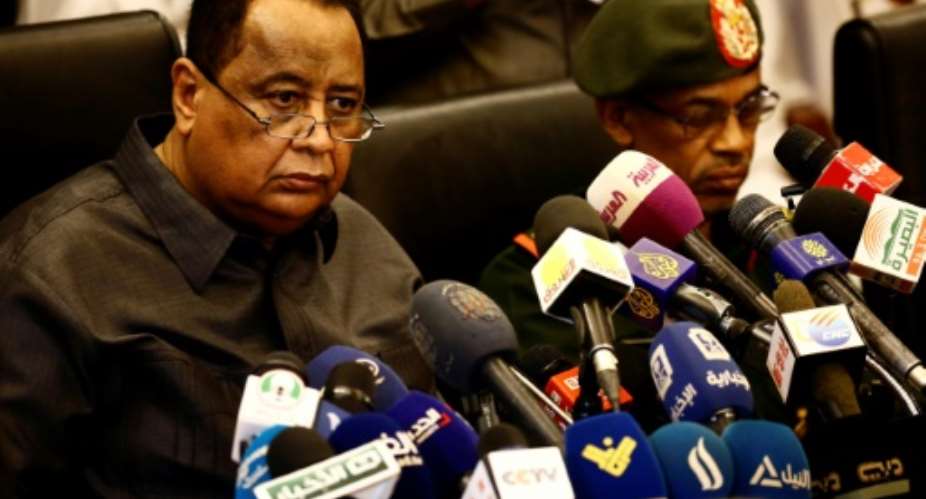Khartoum (AFP) - Sudan's Foreign Minister Ibrahim Ghandour on Saturday said "secret" talks between American and Sudanese officials led to the easing of US sanctions on his country.
US President Barack Obama on Friday announced the lifting of some economic sanctions, trying to improve ties with a country whose leader is accused of war crimes and links to terror.
"We held 23 meetings in Khartoum away from the eyes of the media from June 2016 that lasted six months. The meetings were concluded on December 31," Ghandour told reporters.
The head of Sudan's powerful National Intelligence and Security Service (NISS), Mohammed Atta al-Mawla, told reporters he had met the CIA chief "twice since October 2015".
Sudan, he said, "has been cooperating and coordinating with the US since before 2000 in the struggle against terrorism," he said.
Mawla did not elaborate but said he had received "technical assistance" from the US.
The US decision to ease sanctions will allow Sudan to boost trade and "opens the way for us to use all sorts of currency, specially the US dollar", for trade transactions, according to Finance Minister Badreddin Mahmud.
Sudan has been subject to a US trade embargo since 1997 for its alleged support for Islamist groups. Al-Qaeda leader Osama bin Laden was based in Khartoum from 1992 to 1996.
The United States has also blacklisted Sudan as an alleged state sponsor of terrorism since 1993.
The Khartoum government's scorched earth tactics against ethnic minority rebels in the Darfur region have also been cited as a reason not to lift the sanctions
According to the United Nations, 300,000 people have been killed and 2.5 million were displaced since that conflict began in 2003.
President Omar al-Bashir is wanted by the International Criminal Court for war crimes in Darfur.
Human Rights Watch has expressed concern over Obama's decision.
"The Obama administration's decision to 'ease' sanctions is inexplicable," said Leslie Lefkow of New York-based Human Rights Watch.
"Sudan's government has failed to make progress on core benchmarks, from its ongoing war crimes and crimes against humanity in Darfur and other conflict zones, to its extensive repression of independent voices."





 We’ll protect state wealth from opaque deals – Prof Jane Naana
We’ll protect state wealth from opaque deals – Prof Jane Naana
 Mauritania president says running for second term in June polls
Mauritania president says running for second term in June polls
 I won't ever say I was a mere driver’s mate' — Prof. Opoku-Agyemang
I won't ever say I was a mere driver’s mate' — Prof. Opoku-Agyemang
 2024 polls: 'EC struggling to defend credibility'— Prof. Opoku-Agyemang
2024 polls: 'EC struggling to defend credibility'— Prof. Opoku-Agyemang
 Akufo-Addo gov't's 'greed, unbridled arrogance, unrestrained impunity, sheer dis...
Akufo-Addo gov't's 'greed, unbridled arrogance, unrestrained impunity, sheer dis...
 Election 2024: Ghana needs an urgent reset, a leadership that is inspiring – Ma...
Election 2024: Ghana needs an urgent reset, a leadership that is inspiring – Ma...
 Partner NDC to rollout a future of limitless prospects – Prof Jane Naana Opoku-A...
Partner NDC to rollout a future of limitless prospects – Prof Jane Naana Opoku-A...
 NPP will remain in gov’t till Jesus comes — Diana Asamoah
NPP will remain in gov’t till Jesus comes — Diana Asamoah
 Sunyani Technical University demands apology from former SRC president over sex-...
Sunyani Technical University demands apology from former SRC president over sex-...
 'Dumsor' was resolved by Mahama but ‘incompetent' Akufo-Addo has destroyed the g...
'Dumsor' was resolved by Mahama but ‘incompetent' Akufo-Addo has destroyed the g...
